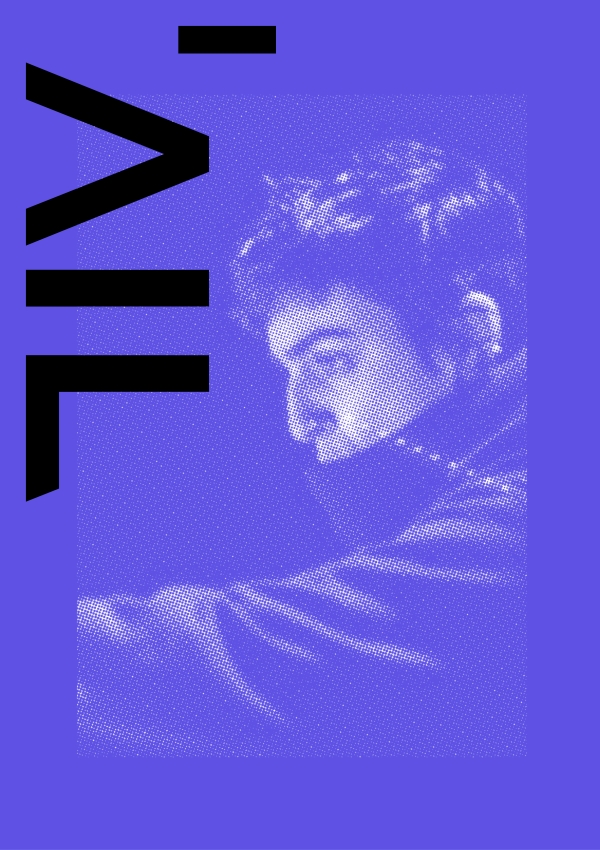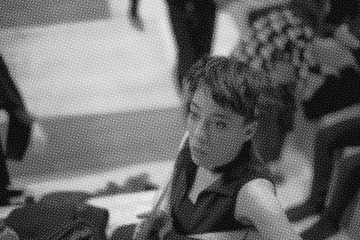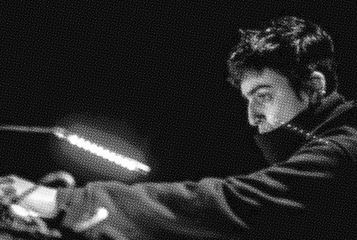The Wetness of Hacking
Transhacking Feminist Perspectives from Wetlab
Barcelona
Angewandte Interdisciplinary Lab
Artist Talk by Gaia Leandra and
Ce Quimera (Wetlab) / Moderation by Patricia J. Reis and Stefanie Wuschitz (Mz* Baltazar’s Laboratory).
Gaia
Leandra and Ce Quimera, currently artists in residence at Hangar’s wetlab in Barcelona, will present their artistic work and
the projects developed at the well-known bioart laboratory.
Since 2021 they have been carrying out Bioxeno, a project
that aims to generate new narratives at the intersection of science and art, using different tools, techniques, disciplines
and practices. They understand bioart as a place of strength, taking a critical point of view to the movement of knowledge
and its scientific production. The project was inspired by Lynn Margullis, who studied microorganisms in the ecosystem of
the Catalunya territory for several years. By establishing interspecies relations with bacterial communities, specifically
the cyanobacteria of the Ebro Delta (Catalunya, Spain), and by taking into account our human limitations and the need for
technology to mediate interspecies relations, the outset of their research questions will be:
Which artistic formats
could show/translate this type of link without reproducing anthropocentric or colonial views? How to account for biodiversity
and the extractivism present in the ecosystems we inhabit? In what ways do we think of the bio as life? How do we think of
our lives? Or rather, how do we live them?
In these present times, when catastrophe and disaster seem to be the only
possible scenarios for the near future and visible eco-social alternatives seem to have come to an end, Gaia Leandra and Ce
Quimera think it is crucial to generate new narratives, new stories about possible livable futures that can challenge our
present ways of living and how we relate to each other and to the other living beings that inhabit planet Earth.
What
is a wetlab? Which bodies inhabit it? Which kind of technologies do we work with in a laboratory? Are they the same we work
with in the wetlab? Do these technologies, which we call living technologies, have a specificity of their own? If the wetlab
generates knowledge, practices and experiences from a transhackfeminist point of view, how do we understand transhackfeminism?
If what matters to us are the ways in which we do things, and we understand transhackfeminism as a multiplicity of methods,
how do we incorporate aspects of care in these practices? How do we deal with the relationships between human and nonhuman
beings? How do pollution and the transmission of knowledge operate in this ecosystem?
We will give a short introduction
to the artists, their artistic works, the projects we are currently developing at wetlab and the processes and organisms that
inhabit the space.
The research into bioart is closely linked to Hangar’s wetlab. Based on a transhackfeminist vision,
wetlab is a space where hybrid interactions take place that disrupt the boundaries generally established between art and science,
while also informing a critical revision of science as an institution. Workshops, presentations, research residences, collective
work processes and discussions are carried out at the lab. In the context of the current ecological debacle, we want to promote
projects that are propositive and offer alternative perspectives in order to rethink possible futures. The wetlab space is
currently coordinated by resident artists Gaia Leandra + Ce Quimera.
Gaia Leandra holds a degree in biology. She
worked at the Institute for Microelectronics and Microsystems (IMM) of the Italian National Research Council CNR. After university,
one of her first artistic collaborations was with Paula Pin as part of the project »Fotosintetika«. She participates in the
Maker Faire (Rome). She exhibited sound work at the Flussi media arts festival in Avellino. She also collaborates with the
collective »Riot Studio« on DIY biology workshops and works with Mary Magicc’s project »Hormons«. Together with the artist
Oskar Martin, she offers workshops on sound biology and electronics. She is part of the Italian collective »Merda Elettronica«.
She teaches DIY synth workshops together with artist Corazón de Robota. She curates independent music festivals such as FTS,
Multiversal, Ràdio Black Out and TPA I 76A Napolitan squatt. From 2020 until 2022, she is part of the art collective residing
at Hangar’s Wetlab in Barcelona.
Ce Quimera is Artist and researcher, born in Argentina and resident in Europe
since 2000, living between Barcelona and Bourges. She studied Social Anthropology in Buenos Aires while doing internships
in the performing arts field.
In 2008, she created the lab Quimera Rosa together with Kina Madno. From this point on,
she focused her corporal and investigative work on post-identity gender policies and corporal, identity and technoscience
experiments with a trans*feminist perspective.
Her work currently focuses on the development of performances, transdisciplinary
projects and interactive installations as well as elaborate devices that function through corporal activity and experimentation
in biohacking. Her work is characterized by long periods of research/experimentation, generally as part of residencies. In
2016, she began working with Quimera Rosa on the project Trans*Plant, carried out and produced by Ars Electrónica and the
European Media Artists in Residence Exchange (EMARE), Hangar and the Barcelona Biomedical Research Park (PRBB), the University
of California in Davis and L'Antre Peaux. In 2019, she participated in Acá soy la que se fue: relatos sudakas en la Europa
fortaleza, a pioneer collection of real stories of and for migrants arriving in Europe from Abya Yala and the Caribbean. She
is artist in residence at the Hangar Wetlab, together with Gaia Leandra (2020/2022), where she carries out investigative and
experimental projects in art and science with a transhackfeminist vision. Most of her work is collaborative and free of patents
and ownership codes and has been presented in streets, galleries, universities, freelance spaces, okupas, art centres, festivals
and museums.
SUPPORTERS: Institut ramon llull, Government of Catalonia (Delegation to Central
Europe)
Bioxeno project has had the support of the “Premios Barcelona 2020” Grants from the Barcelona City Council and
with the support of Hangar.org for our two-year residency at the wetlab (Gaia Leandra + Ce Quimera 2020-2022).
PARTNERS:
Mz* Baltazar´s Laboratory






